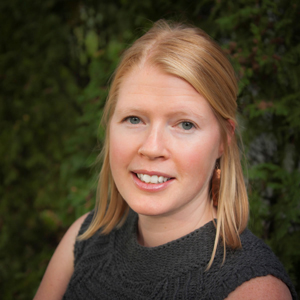Engines of Salvation: Linda Rogers in Conversation with Lisa Martin-DeMoor

Malahat advisory board member Linda Rogers talks with 2013 Open Season Award for Poetry winner Lisa Martin-DeMoor.
Congratulations on winning the 2013 Open Season Award for poetry. How are you affected by prizes? Do they give you the affirmation you need to go forward or is writing your naughty pleasure, something that needs no encouragement beyond the joy of itself? I ask you this contemplating a number of possible answers because community acceptance, while a universal need, is also a complication.
Yes, I am affected by prizes, and they do provide an affirmation to go forward. "Believing is not the same as Being Saved" is a new kind of poem for me, more narratively driven. The draft had been kicking around for a long time, not working. When I finished it in the fall, I felt pleased with it. I felt that the poem was doing real work. So this is a corroboration. But, yes, community acceptance (and its apparent lack) is a "complication," as you say.
"Believing is not the Same as Being Saved" has a refreshing naturalness with the added benefit of some killer, almost proverbial, lines like the ones describing terror passing as pleasure and the rescue boy holding her body as he would a future child, with love. There has been a fashion, of late, for poetry that is more distanced, more crafted than felt. What is your agenda when you sit down to write?
Thank you. I don't think of myself as having an agenda when I sit down to write, but I am aware of working in a way that prioritizes a felt impulse. Of course, I depend on craft to make anything happen on the page. But craft, for me, isn't so much about experimenting with the possibilities of language as it is about getting as close as I can to putting something very specific on the page, something I don't fully understand until the poem is finished. For me, craft is about getting rid of static, finding clarity. It's the only path from felt impulse to realized poem. Poets whose work is the way you describe--"more crafted than felt"--their work helps to expand my sense of what's possible on the page, in language. I admire that kind of work, even if I don't usually love it. I learn from it, but I don't turn to it. My own work relies on what it says as much as how it says it. Not everyone wants that in a poem, but I do.
Do you believe, as some of us still do, in the redemptive story that wounds but also offers prescriptions for healing? Are you advocating for the healing power of words, not as intellectual exercise, but as engines of salvation?
Yes, I do believe in this story. I love your phrase "engines of salvation." I don't know if I believe that words will save us. But they might keep us alive long enough to get on with the business of saving ourselves.
Are there poets you especially admire, a teacher or mentor who has influenced your approach to poetry? What have you been reading lately?
I had the great good fortune of working with Don McKay at The Banff Centre's Writing Studio at a critical moment, and I'm still learning from what he taught me then, nearly ten years ago (as well as from his work, of course). And it was Don who first lent me a copy of Jack Gilbert's The Great Fires, probably the single collection of poetry that has affected me most in the past decade. For the past few months, I've been carrying around John Glenday's Grain, which is tender and wise and gorgeous. I have a stack on my desk in varying stages of being read: Nick Laird, Stephanie Bolster, Jan Zwicky, Sean O'Brien, Erin Knight, Jessica Hiemstra-van der Horst. I've just ordered a copy of a collection by James Longenbach. And I'm very much looking forward to Marita Dachsel's Glossolalia.
Do you find value in reading printed and online literary journals as a form of literary conversation?
Yes, I do.
As a grandmother of adolescents I read your poem with terror and a still growing understanding of the vulnerability of children. Adolescence can mean the loss of innocence but is also a bridge to the other side. I wonder if "testing God against all better judgement" is a function adolescents and poets of all ages have in common.
Yes, perhaps it is. I have two small children--a daughter who is nearly five, and a son who is just 18 months old. So I am learning about vulnerability all the time. And I am still "testing God against all better judgement." It's a lifelong experiment.

Linda Rogers
* * * * * * * *
Read more about Lisa Martin-DeMoor's winning poem here.









